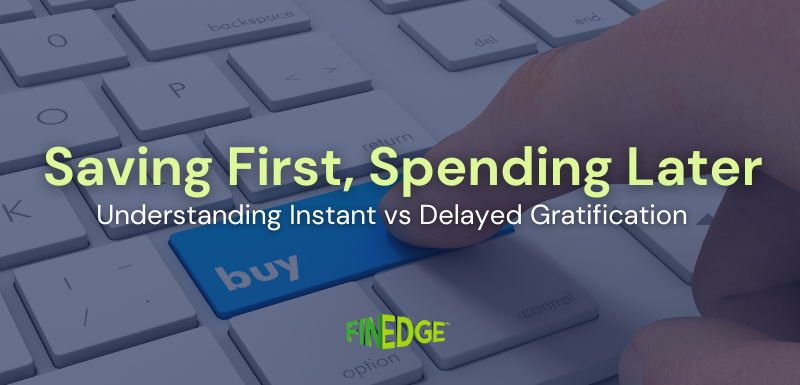How to Invest Your First Salary: Smart Tips for Beginners
- Learn how to invest your first salary wisely without feeling pressured.
- SIPs in mutual funds are a practical and beginner-friendly choice.
- Flexicap funds balance growth and stability for new investors.
- Focus on personal circumstances and goals instead of rigid formulas.
Investing your first salary is less about how much and more about how you begin. Discover practical tips, SIP strategies, and goal-based investing insights to start strong.
Getting your first salary is a big milestone. With it comes independence, responsibility, and the exciting thought: how should I start investing money? The enthusiasm to begin early is excellent, but many young professionals end up overthinking “how much to invest first time” or comparing themselves to peers.
The truth is, there’s no universal formula. Budgeting rules like 50/30/20 sound good on paper, but everyone’s situation is unique. Someone staying rent-free in a family-owned home may be able to invest a larger share of their income than someone renting in a metro city. What really matters is not “how much” but how you begin, building healthy habits, setting goals, and using the time you have on your side.
Tips to Invest Your First Salary
1. Start small, but start early
Don’t wait until you’re earning more. Even a modest SIP of ₹500–₹1,000 per month can kickstart your journey. Starting early gives compounding the maximum runway to work for you.
2. Treat investing like a monthly commitment
Think of your SIP as an “EMI for your future.” This mindset makes it easier to stay disciplined, just as you would with paying rent or bills.
3. Personalize your plan, don’t follow rigid rules
The 50/30/20 rule is popular, but your investing capacity depends on your lifestyle and responsibilities. Build a plan that fits your reality rather than forcing a generic formula.
4. Set goals before investing
Instead of investing ad hoc, connect your money to milestones, like buying a car, funding higher education, or retirement. This gives your investments purpose and makes it easier to stay consistent.
5. Step up as your income grows
Your first salary may only allow a small SIP. That’s fine. The key is to step up contributions with each raise or bonus. Over time, these increases make a big difference.
6. Watch lifestyle inflation
It’s natural to want to spend more as your salary rises, but unchecked lifestyle upgrades can reduce your saving potential. Keep a balance between enjoying the present and preparing for the future.
Where to Invest Your First Salary
1. SIPs help you start small and stay disciplined
Systematic Investment Plans (SIPs) are one of the most beginner-friendly ways to start investing. You don’t need a large amount to begin, even ₹500–₹1,000 per month is enough. What matters is the discipline of investing regularly, which SIPs naturally build into your routine.
2. Benefit from compounding over time
When you start investing with your first salary, you have time on your side. SIPs let you harness the power of compounding by investing consistently over long periods. Even small amounts grow meaningfully when given years or decades to multiply.
3. Flexicap funds provide balance for beginners
Flexicap funds are a great choice for first-time investors. They invest across large-cap, mid-cap, and small-cap stocks, giving you diversification in a single fund. Large caps add stability, while mid and small caps provide growth potential. This balance helps you ease into equity markets without the extreme volatility of purely mid- or small-cap funds.
4. Easy to step up as income grows
Your first salary may only allow a small SIP, and that’s perfectly fine. The real advantage of SIPs is flexibility. As your income rises, you can gradually step up your SIP contributions. This approach aligns your investments with your career growth without straining your finances.
5. Goal-linked investing made simple
Instead of investing ad hoc, SIPs allow you to align contributions with specific goals, whether it’s building a retirement corpus, funding a dream vacation, or planning for a home purchase. Linking SIPs to life goals gives your investments meaning and makes it easier to stay motivated.
What Should You Be Careful Of When Investing Your First Salary?
1. Don’t compare with peers
Everyone has different responsibilities and financial realities. Avoid comparing your portfolio or SIP size to others — it only leads to unnecessary stress.
2. Stay away from fads and “quick money” traps
It’s easy to get swayed by friends trading stocks, crypto, or following finfluencers promising high returns. Remember: long-term wealth is built patiently, not through speculation.
3. Stay consistent in market ups and downs
Markets will always be volatile. The biggest mistake beginners make is stopping SIPs when markets fall. Ironically, downturns are when you buy more units cheaply. Trust the process.
4. Know your risk tolerance
Don’t invest beyond your comfort zone. Start with balanced options like flexicaps. As you gain confidence and understanding, you can explore more volatile categories.
Conclusion
Investing your first salary isn’t about chasing the “perfect” strategy or comparing yourself with others. It’s about taking the first step, however small, and building consistency over time. SIPs in mutual funds, particularly flexicaps, offer a simple, effective way to get started, balancing growth with stability. By focusing on your own goals, staying patient, and resisting the urge to follow fads, you can turn your first salary into the foundation of a strong long-term financial journey.
FAQs
Your Investing Experts
Continue Reading
Types of Gold Investments: A Complete Guide for Indian Investors
Gold continues to be one of India’s most trusted assets, but the way we invest in it has evolved. With multiple formats now available each serving a different purpose it’s important to know where gold truly fits into your financial plan. This guide simplifies your options so you can choose the format that aligns with your goals, behaviour, and long-term strategy.
Instant vs Delayed Gratification: A Behavioural Lens on Long-Term Wealth Creation
Wealth creation is not driven only by market movements or income levels, it is equally shaped by everyday behavioural choices. The balance between instant and delayed gratification often determines whether an investor accumulates meaningful wealth or repeatedly falls short of long-term goals.
What Are Bonds in India?
From government to corporate and tax-free bonds, understand what bonds really mean and how they function within India’s financial ecosystem.

.png)

